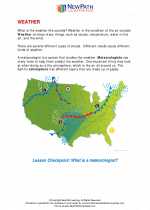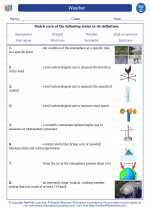Dense Connective Tissue
Dense connective tissue is a type of connective tissue that is characterized by its closely packed collagen fibers. It is found in various parts of the body where strong support and structural integrity are needed, such as tendons, ligaments, and the dermis of the skin.
Key Characteristics of Dense Connective Tissue
- Collagen fibers: The primary structural component of dense connective tissue is collagen, which provides tensile strength and resistance to stretching.
- Few cells: Dense connective tissue contains relatively few cells, mostly fibroblasts, which are responsible for producing and maintaining the extracellular matrix.
- Poor blood supply: Compared to other tissues, dense connective tissue has a limited blood supply, which affects its ability to repair and regenerate.
- Types: There are two main types of dense connective tissue: regular and irregular. Regular dense connective tissue has collagen fibers arranged in parallel, providing strength in one direction, while irregular dense connective tissue has a more random arrangement of collagen fibers, offering strength in multiple directions.
Functions of Dense Connective Tissue
Dense connective tissue serves several important functions in the body:
- Support and structure: It provides mechanical support and structural integrity to the body, such as holding bones together at joints (ligaments) and attaching muscles to bones (tendons).
- Protection: It forms a protective barrier in the skin's dermis, offering resistance to mechanical stress and injury.
- Flexibility and movement: It allows for controlled movement and flexibility in the body, particularly in the musculoskeletal system.
Study Guide
Here are some key points to remember about dense connective tissue:
- What is the primary structural component of dense connective tissue?
- What are the main types of dense connective tissue, and how do their collagen fiber arrangements differ?
- Where in the body is dense connective tissue found, and what are its functions in those locations?
- How does the composition of cells and blood supply in dense connective tissue contribute to its characteristics and functions?
Understanding the characteristics and functions of dense connective tissue is essential for comprehending its role in the body and its importance in maintaining overall health and function.
.◂Science Worksheets and Study Guides Third Grade. Weather
Study Guide Weather
Weather  Worksheet/Answer key
Worksheet/Answer key Weather
Weather  Worksheet/Answer key
Worksheet/Answer key Weather
Weather  Worksheet/Answer key
Worksheet/Answer key Weather
Weather  Vocabulary/Answer key
Vocabulary/Answer key Weather
Weather  Vocabulary/Answer key
Vocabulary/Answer key Weather
Weather 

 Worksheet/Answer key
Worksheet/Answer key
 Worksheet/Answer key
Worksheet/Answer key
 Worksheet/Answer key
Worksheet/Answer key
 Vocabulary/Answer key
Vocabulary/Answer key
 Vocabulary/Answer key
Vocabulary/Answer key

The resources above cover the following skills:
EARTH AND SPACE SCIENCE (NGSS)
Earth’s Systems
Students who demonstrate understanding can:
Represent data in tables and graphical displays to describe typical weather conditions expected during a particular season.